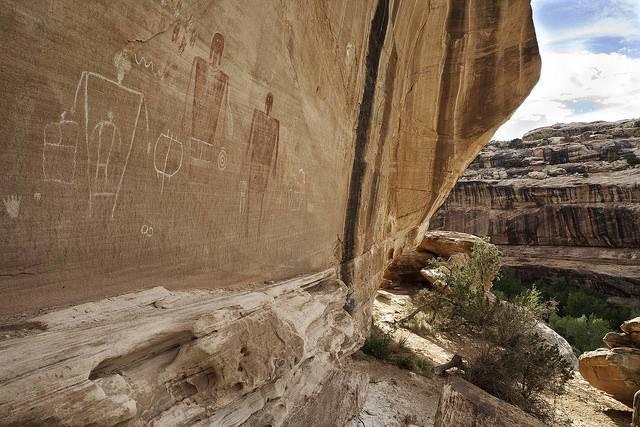
The fight over U.S. public lands managed by agencies such as the Bureau of Land Management (BLM) continues -- and it’s a noisy one.
In the latest salvo fired, the chairman of the House Resources Committee asked congressional budget writers to reserve $50 million in order to transfer federally-managed lands to state and local governments.
Bob Bishop of Utah, who has long chaffed at the federal government’s land holdings in his home state, said that such land transfers are a boost for local control while helping to reduce the federal budget deficit.
Bishop further argued that “poorly managed federal lands create a burden for surrounding states and communities,” Timothy Cama of The Hill reported on Monday.
Environmental groups, however, are taking issue with Bishop’s assumption that these lands are anywhere near a burden. In fact, the BLM estimates that its stewardship of American lands generated $114 billion for local economies in 2014. The Wilderness Society presented an even larger figure, $646 billion, as well as millions of American jobs.
Utah’s congressional delegation, as well as the state’s legislature, has long opposed what they say is an excessive amount of federally-managed public lands and, therefore, relentless federal interference in their local affairs. Estimates suggest that over 60 percent of the state’s area is publicly owned – which in turn churns out several billion dollars a year in revenues and almost a billion dollars in tax receipts for the state’s coffers.
The Outdoor Industry Association (OIA) suggests that those public lands and the revenues they generate comprise 5 percent of Utah’s gross state product. When Utah Rep. Jason Chaffetz proposed a bill in January that would sell off “disposable” lands, the OIA hit back hard. So did some of the outdoor gear trade association’s members, including Patagonia, which said it would pull out of the OIA’s summer trade show this summer in Salt Lake City.
Chaffetz has since withdrawn his bill from the House floor, but the damage was already done: OIA said it will pull its events out of Utah after its contract ends in 2018.
Much of this dispute centered around former President Barack Obama’s declaration of the Bears Ears National Monument last December, which cheered outdoor enthusiasts and Native Americans but left many Utah political leaders fuming. Bishop was one of several Utah Republicans who claimed Obama’s decision to use the federal Antiquities Act to preserve Bears Ears failed to take into account how those lands could best be used. For outdoor-lovers and Native Indian tribes, however, the Bears Ears landscape and history make the need for its preservation and protection obvious.
The fight is far from over. Recently the Donald Trump administration reversed a ban on lead-based ammunition and tackle on federally managed lands, which Bishop hailed as important in order to stop “a deliberate attack on Americans’ fundamental rights and privileges.”
But even the current White House seems to realize that any deficit reduction will require more than a few million dollars of discretionary spending here and there.
Cama of The Hill reports that Donald Trump and his new Interior Secretary Ryan Zinke are resisting any large-scale transfer of federal lands – and Bishop has yet to make clear which lands he plans to relinquish. Meanwhile, environmental groups are fired up: Matt Keller of the Wilderness Society dismissed Bishop as a “bully” and described the congressman’s tactic as a ploy that would only benefit energy and mining interests.
Image credit: BLM/Flickr

Leon Kaye has written for 3p since 2010 and become executive editor in 2018. His previous work includes writing for the Guardian as well as other online and print publications. In addition, he's worked in sales executive roles within technology and financial research companies, as well as for a public relations firm, for which he consulted with one of the globe’s leading sustainability initiatives. Currently living in Central California, he’s traveled to 70-plus countries and has lived and worked in South Korea, the United Arab Emirates and Uruguay.
Leon’s an alum of Fresno State, the University of Maryland, Baltimore County and the University of Southern California's Marshall Business School. He enjoys traveling abroad as well as exploring California’s Central Coast and the Sierra Nevadas.














